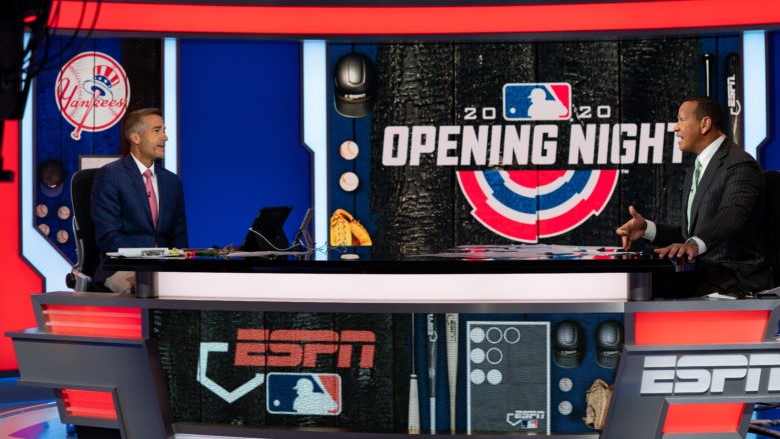ESPN to End MLB Coverage Starting in 2026
"ESPN's demand to reduce rights fees is simply unacceptable. As a result, we have mutually agreed to terminate our agreement."

ESPN announced Thursday night that it will no longer broadcast Major League Baseball games starting in 2026 after the network failed to agree to terms for a new seven year deal.
With a March 1st deadline looming, ESPN decided to opt out of the final three years of their seven-year contract, which was signed in 2021 and valued at $550 million per season.
"We are grateful for our longstanding relationship with Major League Baseball and proud of how ESPN's coverage super-serves fans," the network said in a statement. "In making this decision, we applied the same discipline and fiscal responsibility that has built ESPN's industry-leading live events portfolio as we continue to grow our audience across linear, digital and social platforms.
"As we have been throughout the process, we remain open to exploring new ways to serve MLB fans across our platforms beyond 2025."
ESPN has been carrying MLB games for 35 years with its most recent contract carrying 30 regular season games along with some wild-card games in the post-season. In its earlier contract that ran eight years from 2014-2021, ESPN carried up to 90 regular season games.
But the sports TV scene has changed radically since 1990 with the rise —and eventual fall—of regional sports networks along with the major sports leagues themselves creating their own networks (the MLB network, which launched in 2007, carries select games).
In recent years, streaming services like Apple TV, which inked a deal in 2022 to launch “Friday Night Baseball,” have increasingly encroached on ESPN’s turf. Since 2017, MLB games have been broadcast intermittently on Facebook (2017–2019), Peacock (2021–2023), Twitter (2017–2018), YouTube (2019–2022). In 2024, Roku inked an exclusive multi-year deal to carry Sunday MLB games for free on The Roku Channel.
Get the TV Tech Newsletter
The professional video industry's #1 source for news, trends and product and tech information. Sign up below.
Fox broadcasts 52 regular season MLB games and is also the exclusive network for the MLB All-Star Game and the World Series. TBS broadcasts 13 regular season games as well as exclusive coverage of the National League Division Series and the National League Championship Series during the postseason. MLB receives an average of $729 million from Fox and $470 million from Turner Sports per year under deals that expire after the 2028 season.
Major League Baseball also commands the highest individual player salaries in the U.S., with its star standout—L.A. Dodgers Shohei Ohtani recently signing a 10-year $700 million contract, the highest in U.S. sports history.
ESPN said it “is still open to pursuing a deal with a reduced rights fee after seeing deals struck with Apple and Roku. Apple pays $85 million per season for a Friday night package it has aired since 2022, while Roku's deal for Sunday afternoon games is worth $10 million per year.”
The stumbling block is over rights fees, which the MLB says don't reflect the impact of the sports' popularity or how the league thinks the network's coverage has deteriorated.
"Unfortunately in recent years, we have seen ESPN scale back their baseball coverage and investment in a way that is not consistent with the sport's appeal or performance on their platform. Given that MLB provides strong viewership, valuable demographics, and the exclusive right to cover unique events like the Home Run Derby, ESPN's demand to reduce rights fees is simply unacceptable. As a result, we have mutually agreed to terminate our agreement."
It added that there is "significant interest from both traditional media companies and streaming services who would like to obtain rights to MLB games. We will be exploring those opportunities for a new agreement which would start in the 2026 season following the conclusion of ESPN's agreement at the end of this year," the league said.
Tom has covered the broadcast technology market for the past 25 years, including three years handling member communications for the National Association of Broadcasters followed by a year as editor of Video Technology News and DTV Business executive newsletters for Phillips Publishing. In 1999 he launched digitalbroadcasting.com for internet B2B portal Verticalnet. He is also a charter member of the CTA's Academy of Digital TV Pioneers. Since 2001, he has been editor-in-chief of TV Tech (www.tvtech.com), the leading source of news and information on broadcast and related media technology and is a frequent contributor and moderator to the brand’s Tech Leadership events.

